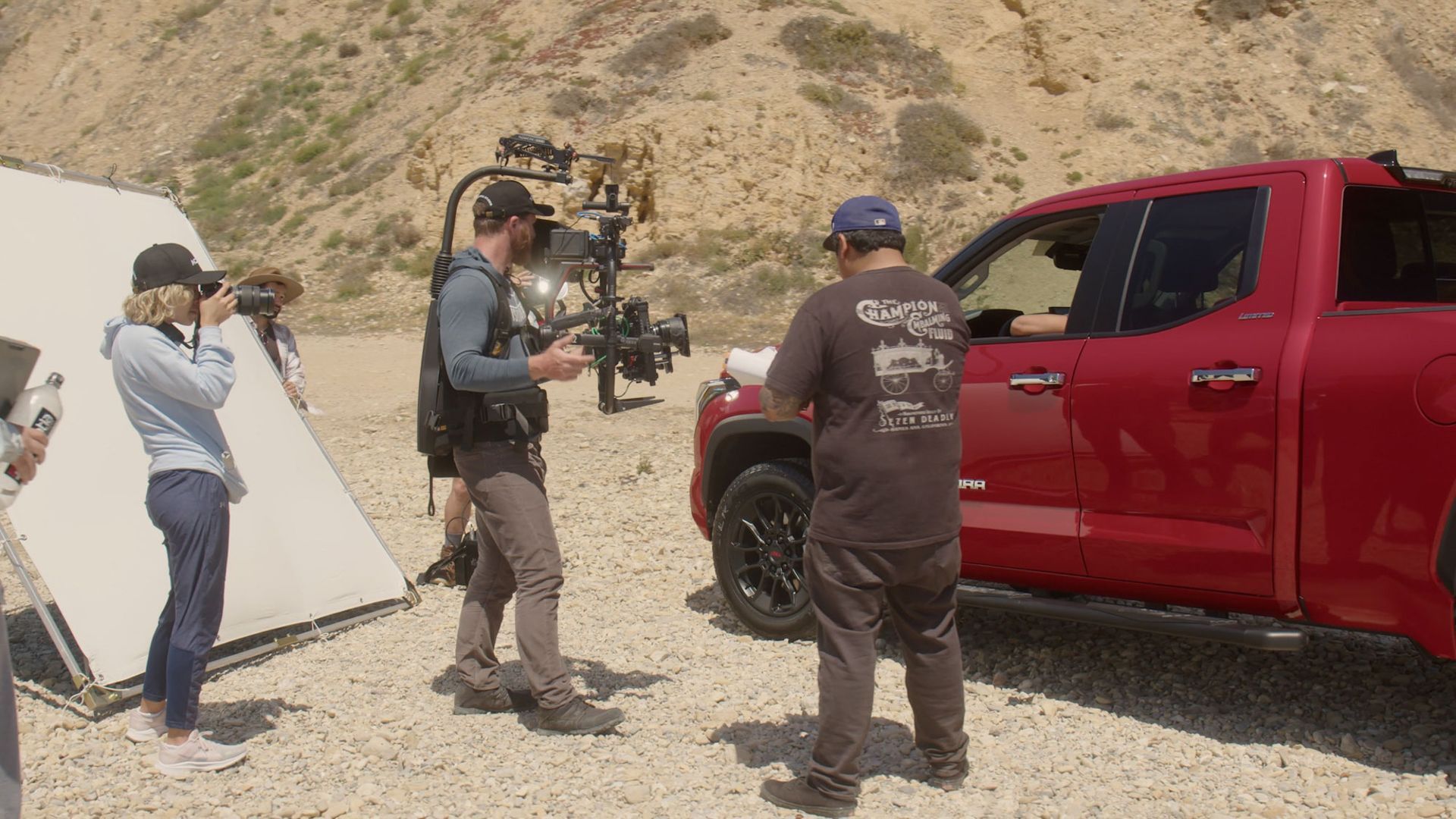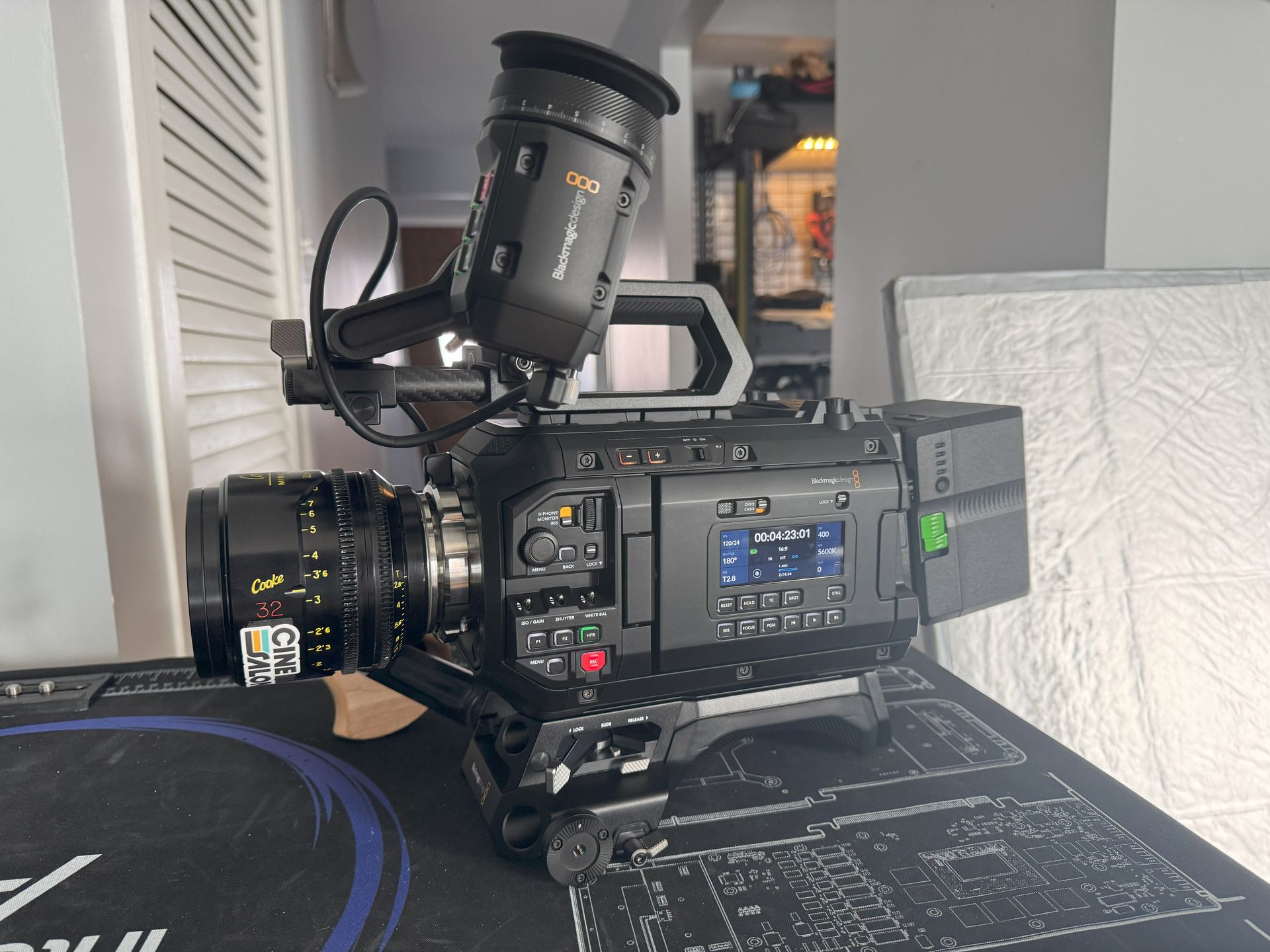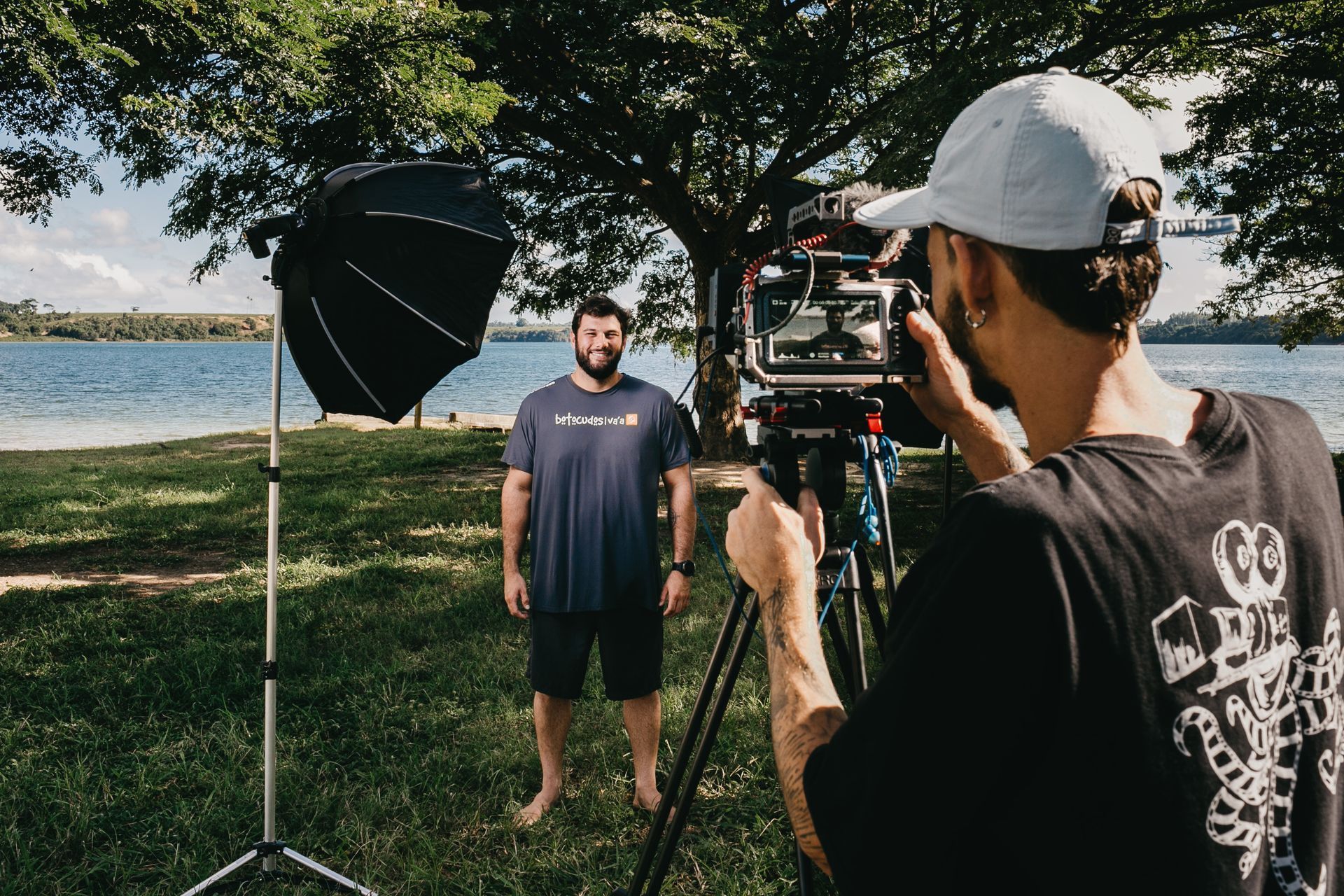
A skilled video director is the visionary force that transforms a script into a captivating visual masterpiece. A video director has many tasks in making a video, like picking actors and crew and handling shooting and editing. To be a good video director, you need unique qualities that excite a script and hold the viewers' attention. This comprehensive guide will delve into the fundamental attributes that distinguish a good director and explore the paramount qualities of this demanding role.
Qualities that Make a Good Video Director
Creativity and Vision
A cornerstone of what makes a video director exceptional is an unbridled well of creativity and an unerring vision. These forces breathe life into scripts, transforming them into visually captivating and emotionally engaging narratives. A good video director is not merely someone who calls the shots; they are the driving force behind the entire creative process.
Imagine a video director as an artist with a canvas, painting vivid scenes, emotions, and stories with each frame. They possess an innate ability to see the big picture, envision how the video will look, and intuitively grasp how it will feel. This creative vision is their North Star, guiding them through the intricate video production process. It's their gift to imagine how a thrilling action sequence will unfold, how a romantic moment will tug at heartstrings, or how suspense and drama will be meticulously crafted.
Moreover, a video director's creative vision extends beyond aesthetics; it encompasses storytelling. They must not only visualize the story but also translate it into a compelling visual narrative. This requires the director to make many choices, from selecting the perfect camera angles to creating the right atmosphere through lighting and set design. The way these elements intertwine is the alchemy of storytelling, and a skilled director is the master alchemist.
Technical Skills
While creativity and vision are the director's artistic palette, technical skills are the tools they use to bring their vision to life. A skilled video director knows much about the technical side of making videos. This means they understand how to use cameras, different ways to light a scene, and the details of video editing.
Camera angles are the director's brushstrokes. Different lighting setups can turn a location from warm and inviting to stark and dramatic. Editing is the director's editing room, where the narrative is carefully molded. The pacing, sequencing, and transitions are meticulously chosen to create a seamless, engaging story.
A good video director must be technically proficient to communicate their creative vision effectively to the cast and crew. They must know the capabilities and limitations of the equipment at their disposal, as this knowledge informs their decisions and ensures the realization of their vision.
Leadership Skills
A video director is more than just a creative thinker and a leader guiding the production process. Strong leadership skills are essential for creating a positive and productive work environment. Directors must motivate and inspire the cast and crew, fostering unity and purpose.
Directing a production is like juggling many tasks. Directors must handle schedules, coordinate efforts, and address team needs and concerns. They establish the project's atmosphere, and their ability to maintain a positive and motivating environment significantly impacts the final product's quality.
A proficient director knows their team's strengths and weaknesses, delegates tasks effectively, and ensures everyone's creativity aligns with the project's goals. Their leadership paves the way for a smooth, efficient, and successful production.
Communication Skills
One of the hallmarks of an exceptional video director is their excellent communication skills. These skills extend in two essential directions: conveying their creative vision to the cast and crew and providing constructive feedback.
To begin with, directors need to express their creative vision clearly and precisely. They must communicate their expectations and ideas effectively to the cast and crew, ensuring everyone understands and is in sync. This clear communication is crucial to ensure that every part of the production matches the director's vision. Whether explaining the desired emotion in a scene or the specific camera angles, a good director can transform their creative vision into a shared objective for the entire team.
Secondly, directors must possess the ability to provide constructive feedback. Video production is a collaborative process, and there will be times when adjustments are needed. A skilled director can offer informative and inspiring feedback, encouraging the team to improve without demoralizing them. This feedback loop is essential for continuous growth and refinement during the production process.
Collaboration Skills
In video production, collaboration is not just a buzzword; it's the lifeblood of the creative process. A good video director collaborates effectively with the cast and crew. They listen to feedback, consider different perspectives, and adapt as needed.
Every production team member brings unique skills and experiences to the table. A successful director values this diversity and leverages it to enhance the project. Whether it's the input of the cinematographer on camera angles or the actor's interpretation of their character, a director knows how to harness these insights to elevate the overall quality of the video.
The collaborative aspect of video production extends to problem-solving as well. Challenges can arise at any project stage, from technical hiccups to creative roadblocks. A skilled director thrives on collaboration in overcoming these obstacles, ensuring the project progresses smoothly.
Storytelling Skills
At its heart, video production is about storytelling, and a good video director is a masterful storyteller through visuals. They understand how to craft a compelling narrative using the language of film – camera angles, editing techniques, and music. These elements are the building blocks that construct a story in the audience's minds.
A director's camera angles can evoke specific emotions in the viewers. How a scene is framed can make the audience feel connected to or distanced from the characters. The pace of editing can create tension, excitement, or calmness. Music, sound effects, and silence are tools that the director uses to underscore the emotions and moods in the narrative.
Other Important Qualities
In the multifaceted world of video direction, it's not just the fundamental qualities we discussed earlier that define a great director.
Passion
At the core of every exceptional video director lies an unshakeable passion for their work. This deep-seated drive powers their creative abilities and distinguishes them. A proficient video director isn't merely a professional; they are enthusiasts who approach their projects with excitement and wholehearted dedication to producing the best possible video.
Passion is the motivating factor that inspires a director to invest their utmost effort into every project, regardless of size. It's what propels them in their relentless pursuit of perfection. They enthusiastically approach each new project, inspiring the team to share their dedication. This fervor for their work fuels their creative vision and ensures their videos are well-executed and imbued with genuine emotion and authenticity.
Adaptability
Adaptability is a prized quality in video production that can make or break a director's success. A good video director is like a maestro who can navigate the unpredictable terrain of the industry and think on their feet. This quality becomes paramount when dealing with unexpected challenges, last-minute changes, and unforeseen problems that can emerge during a shoot.
A great video director is distinguished by their unwavering passion for their craft, which fuels their creativity and commitment to delivering outstanding work. Love motivates them to give their best effort on every project, regardless of size.
Attention to Detail
A keen eye for detail is an often underestimated quality that can make a difference in video production. A good video director has an innate ability to spot even the most minor imperfections in a shot. They are meticulous and understand that accumulating these details determines the final product's quality.
Attention to detail extends to every aspect of the production. It involves ensuring that every frame is perfectly composed, the lighting is just proper, and there are no continuity errors between scenes. It also includes being vigilant about sound quality, wardrobe, and set design. A director's focus on these minutiae results in a well-crafted but also immersive and captivating video.
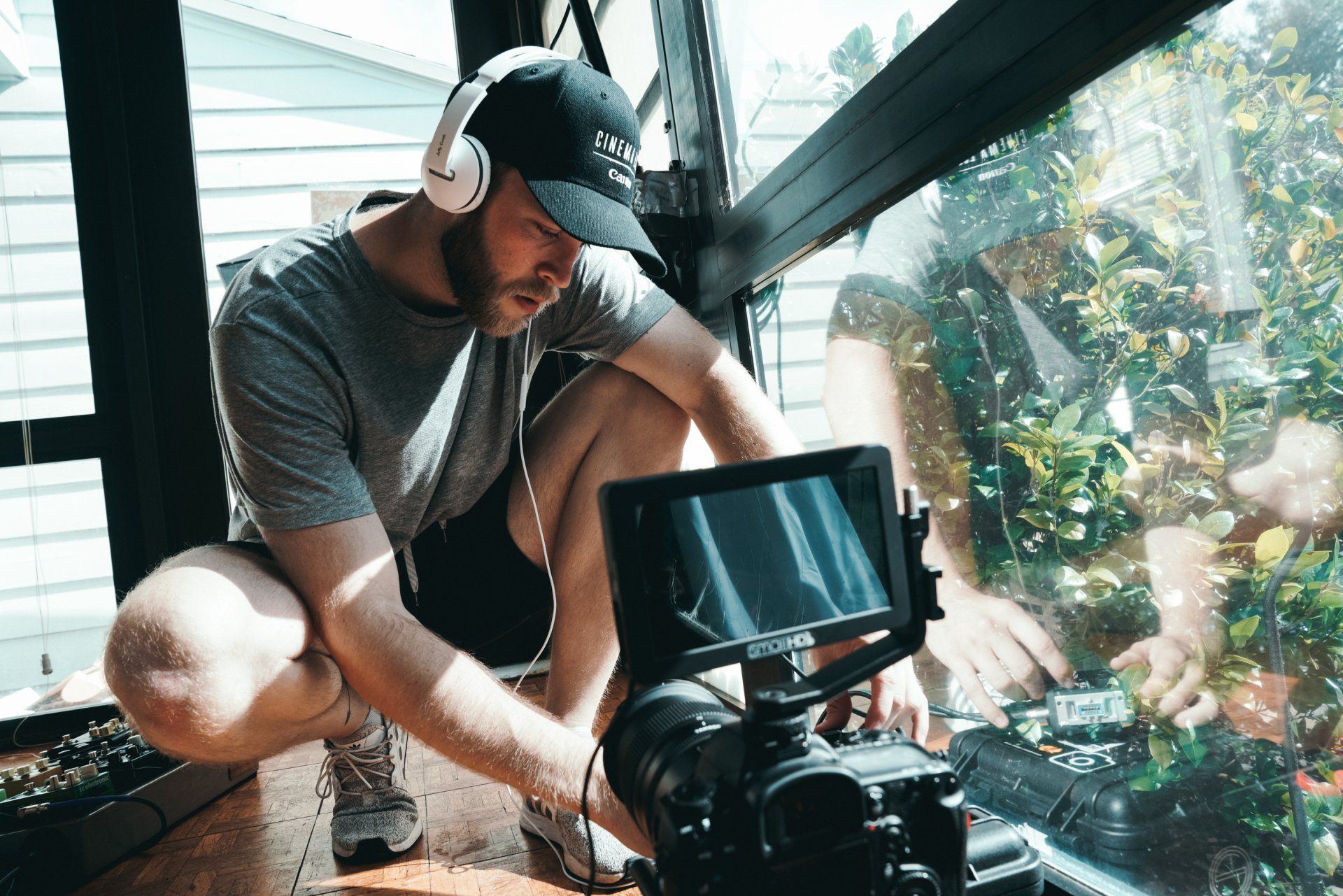
How to Become a Video Director
1. Get a Formal Education
Formal film or video production education can provide you with a solid foundation of knowledge and skills invaluable for aspiring video directors. Though not mandatory, formal education can significantly improve your grasp of the craft. An array of educational options awaits, including associate's, bachelor's, and master's degree programs.
Formal education introduces essential principles in film theory, cinematography, editing, and production techniques. It offers a systematic approach to developing a profound knowledge of video production and provides opportunities to connect with peers and establish industry connections.
2. Gain Experience
The most crucial aspect of becoming a video director is gaining practical experience. This hands-on knowledge is where theory meets reality; real-world expertise often shapes a director's skills and style. Start by working as a production assistant or intern on various video productions.
These entry-level positions allow you to learn the ropes of video production, from operating cameras to assisting with lighting and sound. It's an excellent way to familiarize yourself with a film set's dynamics and make connections in the industry. Each project you work on will teach you valuable lessons and help you understand how the various roles on a film set contribute to the final product.
3. Create Your Work
After gaining some experience, it's crucial to begin producing your content. This might include short films, music videos, or personal projects. These self-directed ventures serve several vital purposes.
Firstly, they allow you to apply the knowledge and skills you've gained, enhancing your expertise through practical experience.
Secondly, these projects build your portfolio, serving as your introduction to video directing and showcasing your abilities and style. Your portfolio showcases your style, vision, and technical skills. The more varied and high-quality your work, the more attractive you are to potential employers or collaborators. Whether it's showcasing your storytelling abilities or your visual creativity, your portfolio is your most persuasive tool for landing professional video directing opportunities.
4. Network with Other Professionals
Creating a solid network of contacts within the industry can provide access to fresh opportunities and collaborations. Participating in industry events, film festivals, and workshops offers chances to network with colleagues like producers, cinematographers, editors, and fellow directors. Every connection you establish holds the potential to provide valuable insights, mentorship, or job referrals. The more extensive your professional network, the better your chances of learning about new prospects. Cultivating meaningful relationships can also result in valuable feedback and guidance from experienced individuals who have followed a similar journey. In video production, networking is not just beneficial; it's essential.
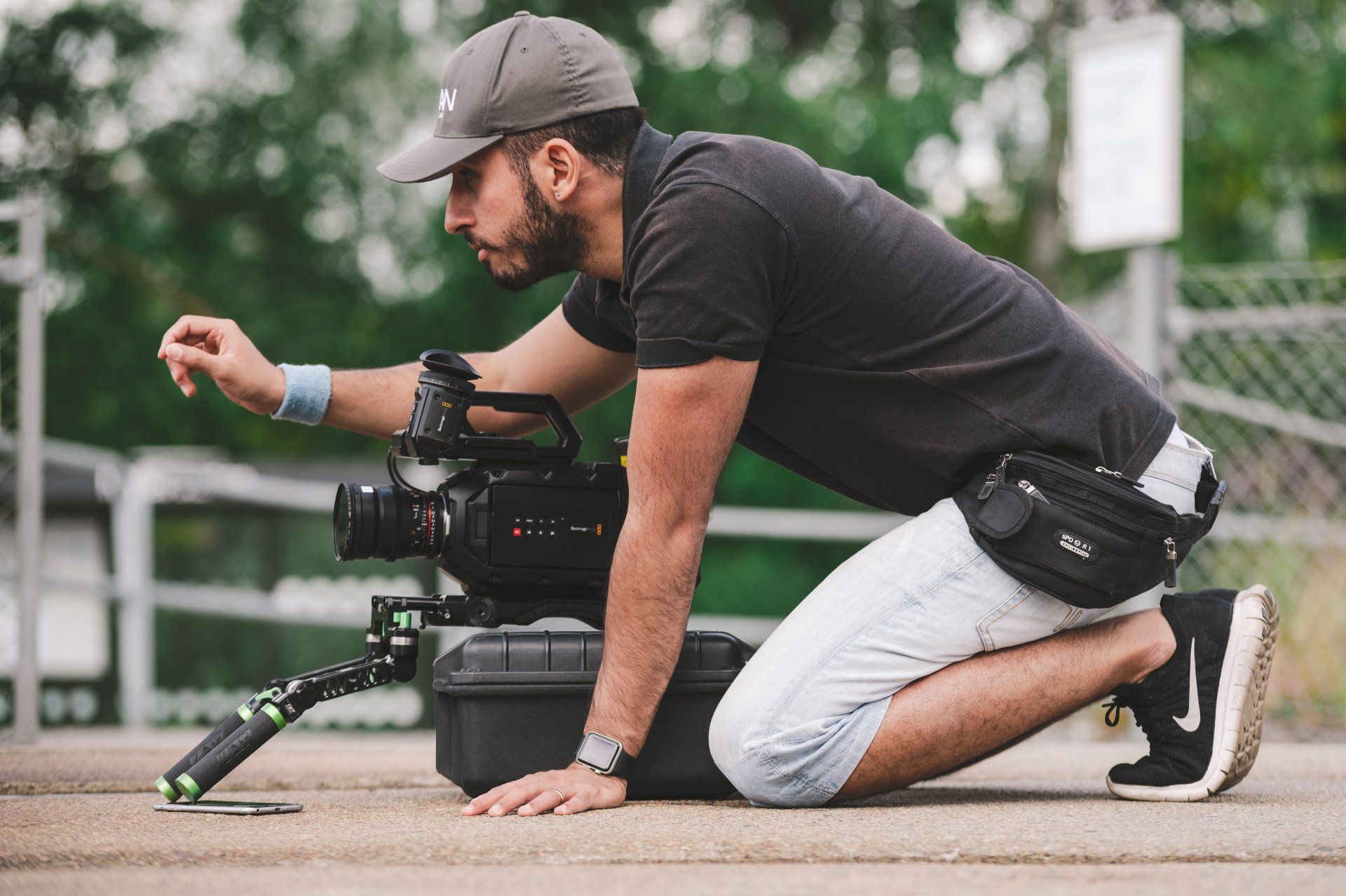
The Best Video Directors of All Time
Alfred Hitchcock
Alfred Hitchcock, commonly called the "Master of Suspense," is celebrated for his skill in creating gripping and tense films. His cinematic works have achieved iconic status, inspiring countless directors to adopt and imitate his methods. Hitchcock's timeless classics, such as "Psycho," "Vertigo," and "Rear Window," are not just precious cinematic gems but also insightful tutorials for creating on-screen suspense and intrigue. His inventive use of camera angles, narrative methods, and sound design revolutionized the suspense genre, establishing the benchmark for psychological thrillers.
Steven Spielberg
His reputation is built on his exceptional skill weaving captivating narratives and fashioning visually striking and emotionally evocative movies. He possesses a remarkable talent for breathing life into imaginative tales and shaping unforgettable personas, such as E.T. and Indiana Jones, thereby forging profound bonds with viewers.
Martin Scorsese
He masters cinematic realism, delving into dark and gritty themes while capturing the human condition on screen. He explores violence, redemption, and the search for meaning, creating powerful and moving films. Scorsese is also adept at working with actors, leading to iconic performances like Robert De Niro in Taxi Driver and Raging Bull.
Stanley Kubrick
He excels in visual storytelling and creating a compelling atmosphere. His films are intelligent thought-provoking, and often evoke a sense of dread and suspense through imagery and symbolism. Kubrick pays meticulous attention to detail in every aspect of filmmaking, making his movies exceptionally well-crafted.
Conclusion
Skilled video directors have more than just technical chops. They are visionaries, guiding lights, effective communicators, teamwork champions, masterful narrators, and devoted artisans. This combination of qualities brings extraordinary films that grip and ignite viewers' imagination. Furthermore, a proficient director demonstrates adaptability in overcoming unforeseen challenges and maintains meticulous attention to detail to ensure the quality and precision of every frame. As we honor the greatest video directors in history, we recognize that their extraordinary talents and steadfast commitment to their art have left a lasting impact on cinema, motivating aspiring directors to push the boundaries of storytelling through the lens continually.

Get total clarity on your video marketing and paid media with our FREE comprehensive data audit.

